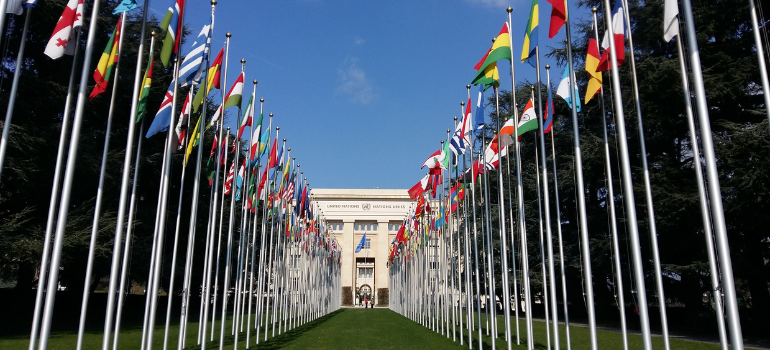
CETIM and its partners have seized the human rights protection mechanisms of the United Nations to denounce the impunity of the perpetrators of the Sacaba and Senkata massacres.
Following the institutional breakdown in Bolivia and the human rights violations committed in this context, CETIM, the Centre for Legal and Social Studies (CELS), the Andean Information Network, The Association for Human Rights – Bolivia and the University Network for Human Rights appealed to the UN human rights protection mechanisms to denounce the massacres in Sacaba (Cochabamba, 15 November 2019) and Senkata (El Alto, La Paz, 19 November 2019), perpetrated by the security forces. Both events occurred after the forced resignation of Evo Morales, followed by the self-proclamation of Jeanine Áñez as President.
The extensive evidence presented shows that the armed forces and police used lethal weapons to suppress demonstrations against the disrespect of the constitutional order by the self-proclaimed government of Añez, resulting in 21 dead and more than 70 injured. No medical care was provided to the victims of the repression. On the contrary, in both cases, witnesses claim that those who tried to help the victims were also fired upon. On 14 November 2019, one day before the Sacaba massacre, Áñez signed a decree guaranteeing impunity for the armed forces.
The documents that we have submitted to the United Nations are based on abundant evidence, including dozens of audio recordings, images, videos and interviews obtained by Bolivian and international organizations.
To date, no judicial inquiry could be held to determine responsibility for the killings and the serious injuries inflicted on the people exercising their right to demonstrate. On the contrary, in the weeks following the events, evidence has been destroyed, many witnesses have been subjected to torture and threats, and the armed and security forces have refused to give the public prosecutor any information on the persons commanding the operations, the units mobilized or the weapons they carried. In addition, people continued to be arbitrarily detained for participating in the November demonstrations.
The political persecution and criminalisation of persons and organisations demanding the respect of the constitutional order and demonstrating against the repressive policy of the de facto government have not ceased since then and have even worsened. In recent weeks, trade union and peasant movements have been mobilising throughout the country to demand the restoration of democracy. Since then, paramilitary groups have also been mobilised, colluding with the forces of law and order, to terrorise demonstrators.
The institutional breakdown of November 2019 in Bolivia generated an alarming spiral of violence. The political situation in the country is very tense, in particular because of an upcoming presidential electoral process. As a result, there are fears that new massacres may be committed.
CETIM and its partner organisations will continue to be attentive and will closely follow the development of the situation in Bolivia, while demanding truth and justice for the victims of the massacres. The perpetrators of these massacres must be brought to justice and those arbitrarily detained must be released. We will make all the necessary efforts to restore democracy and respect for human rights in the country.